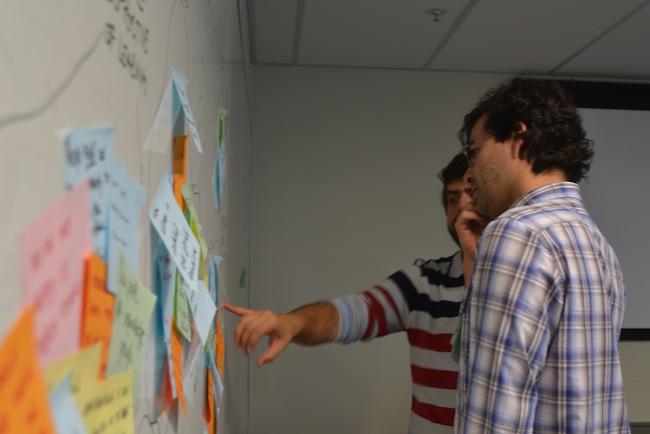Disclaimer: The statements and opinions expressed in this article are those of the author(s) and do not necessarily reflect the positions of Thoughtworks.

It is common for agile teams to adopt a number of ceremonies, and usually they are chosen by team members.The purpose of each ceremony is specific and I shall now explore Retrospectives and the role of the facilitator in this kind of meeting.
A Retrospective is a ceremony held at the end of each iteration in an agile project. The general purpose is to allow the team, as a group, to evaluate its past working cycle. In addition, it’s an important moment to gather feedback on what went well and what did not. Finally, retrospective is a moment for the team to define actions that may fix or improve things identified as negative.
The three items above convey the general purpose of the work a facilitator is supposed to perform in a retrospective. Nonetheless, retrospective is a good moment to assess other items important for the team and key to sucess, such as the team's self-esteem, its confidence regarding team, product and delivery and both mutual trust and focus of tension among the members.

The facilitator is key role in holding a sucessful retrospective. It is the facilitator's responsability to help the team keep the discussion focused and productive.
Thinking about the role and responsabilities of a retrospective facilitator, I came up with a list of 5 important reminders for an unexperienced facilitator:
For you that's starting to study more about this theme, I recommend the material that is in here. If you want to do your retrospective in a different and funny way, there is this great material by Thoughtworkers Paulo Caroli e Tainã Caetano.
Lastly, the improvement cycle is applicable for you too! Enjoy and use this to get feedbacks at the end of ceremony about your performance as a facilitator. Keep in mind that you can also evolve in your role and surely your team will contribute (a lot) to this.
Disclaimer: The statements and opinions expressed in this article are those of the author(s) and do not necessarily reflect the positions of Thoughtworks.
Thoughtworks acknowledges the Traditional Owners of the land where we work and live, and their continued connection to Country. We pay our respects to Elders past and present. Aboriginal and Torres Strait Islander peoples were the world's first scientists, technologists, engineers and mathematicians. We celebrate the stories, culture and traditions of Aboriginal and Torres Strait Islander Elders of all communities who also work and live on this land.
As a company, we invite Thoughtworkers to be actively engaged in advancing reconciliation and strengthen their solidarity with the First Peoples of Australia. Since 2019, we have been working with Reconciliation Australia to formalize our commitment and take meaningful action to advance reconciliation. We invite you to review our Reconciliation Action Plan.
